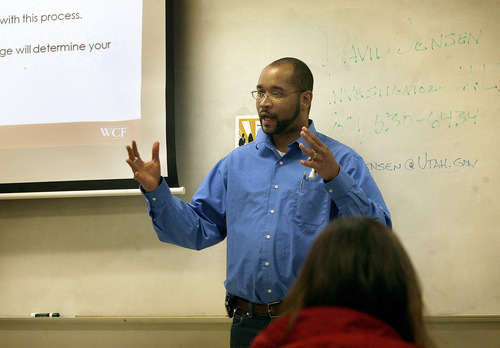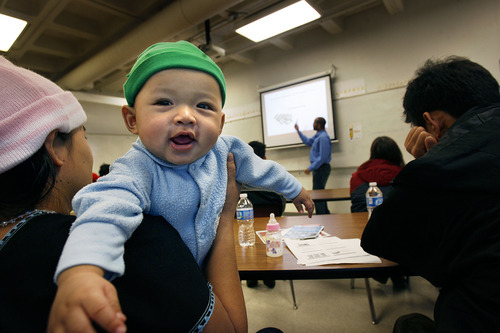This is an archived article that was published on sltrib.com in 2011, and information in the article may be outdated. It is provided only for personal research purposes and may not be reprinted.
Pee Lu knows he is one of the lucky ones.
A refugee from war-torn Myanmar, Lu is one of about 550 members of the Karen ethnic group living in Utah — and he is one of even fewer able to find work.
"Sometimes it's very hard," said Lu, who through a neighbor found a job at a Salt Lake warehouse when he first came to Utah more than four years ago.
Shars Pu, a refugee who came to Utah only three months ago, has so far searched in vain for employment.
"I don't speak the language," he said through an interpreter. "I just want to get a job that I don't need to speak."
On Saturday, the Salt Lake City Office of Diversity and Human Rights hosted a workshop for about a dozen Karen refugees in hopes of easing their hunt for jobs and helping them protect themselves against workplace abuses once they've found employment.
"Even before this economic situation," said Yolanda Francisco-Nez, Office of Diversity coordinator, "it was very difficult for refugees to find jobs. But one of the most valuable things about our refugee populations is that they're extremely hard workers. The best thing we can do is befriend them."
Representatives from the Utah Labor Commission, the Workers Compensation Fund and the American Civil Liberties Union instructed the group on topics from minimum wage requirements to necessary documentation for employment.
Even with help from his neighbor, Lu recalled the job application process being a challenge.
"There were a lot of questions I didn't understand," he said.
The Office of Diversity and Human Rights has been providing the anti-discrimination and employment instruction for all the city's refugee groups, Francisco-Nez said.
There are roughly 25,000 refugees living in the Salt Lake Valley and most live within Salt Lake City limits, officials said.
The Karen, the minority ethnic group from the country formerly known as Burma, are one of the five largest refugee groups living in the city, she said, along with Somalis, Iraqis, Sudanese and Bhutanese.





